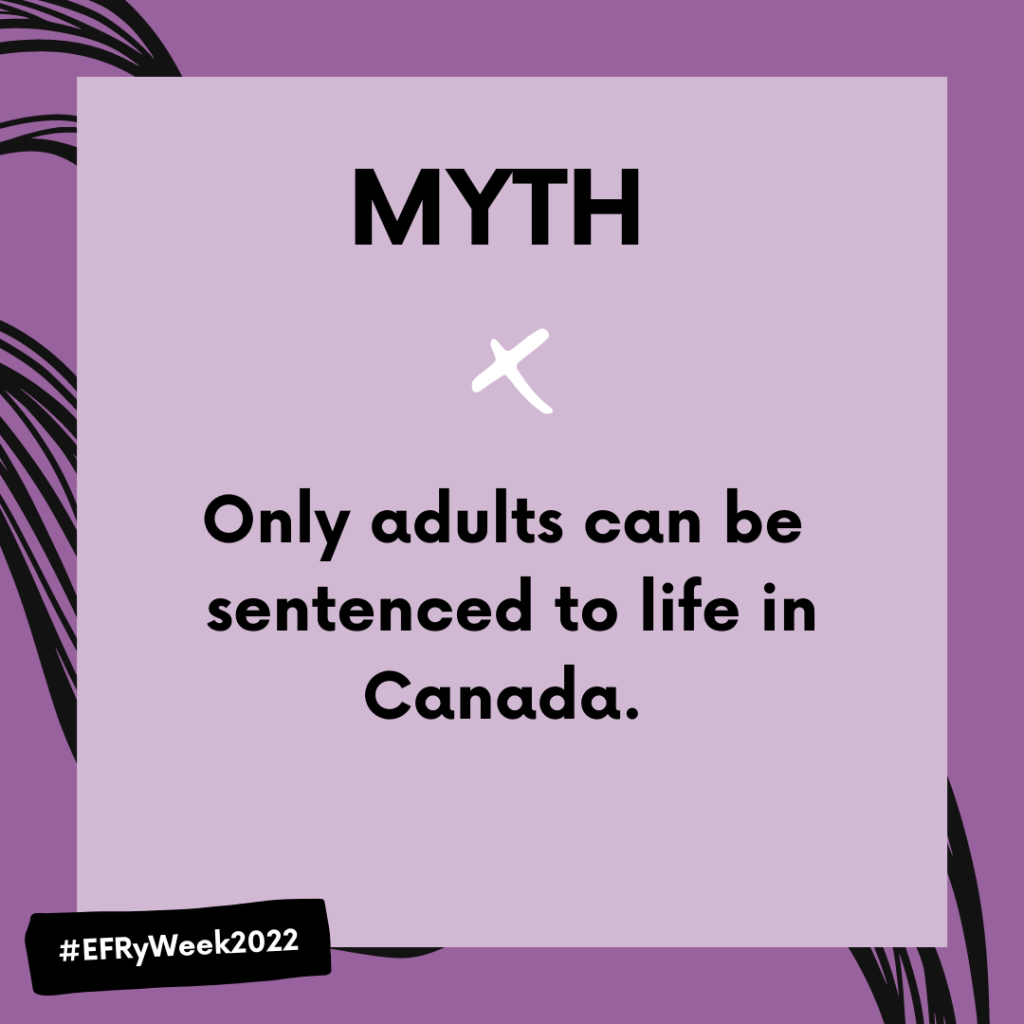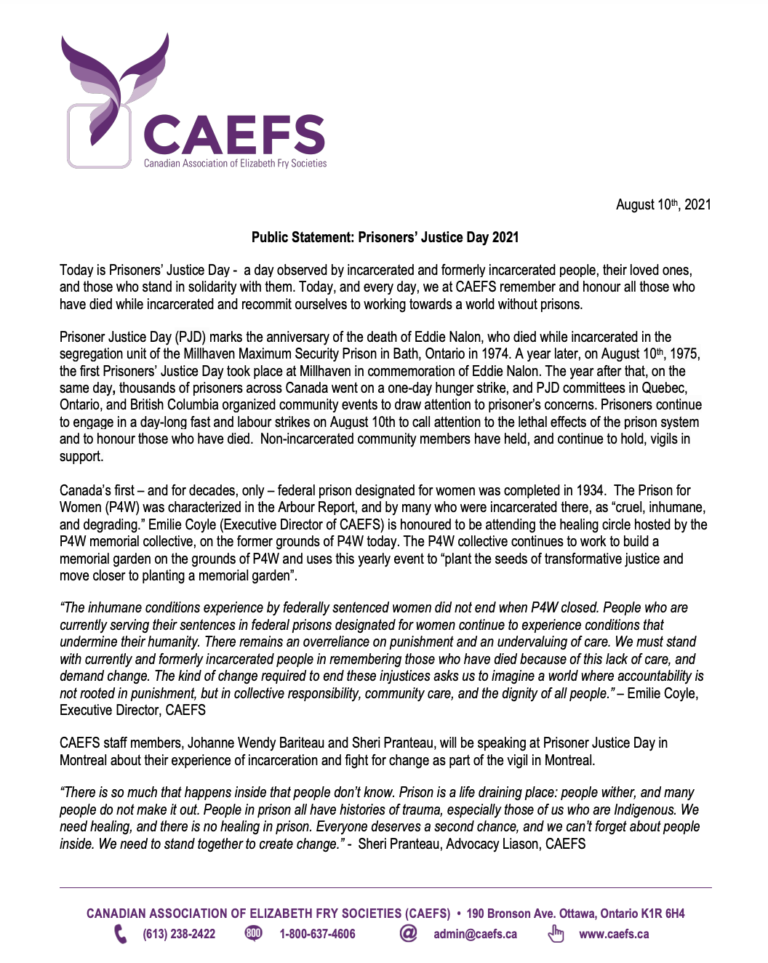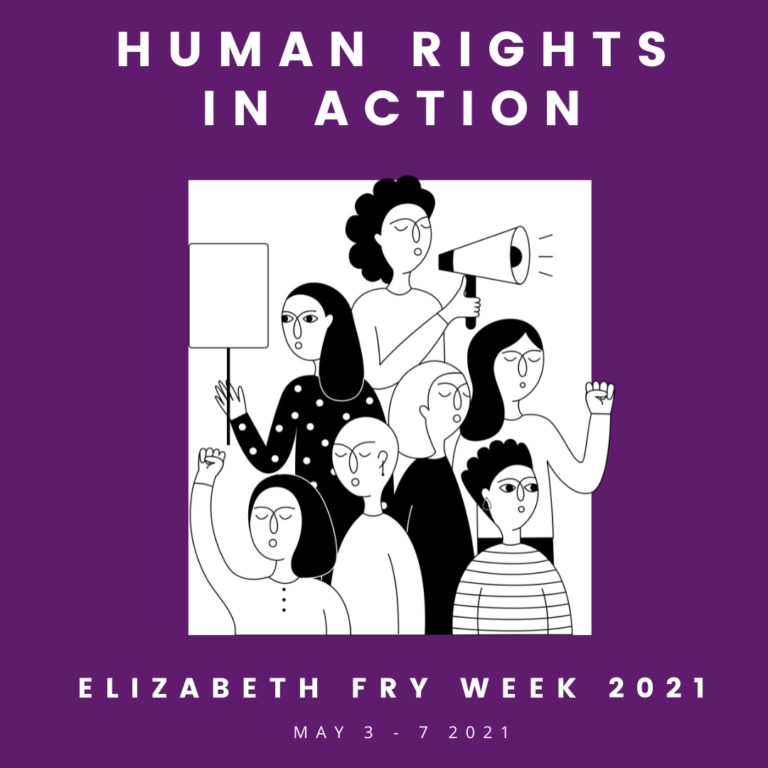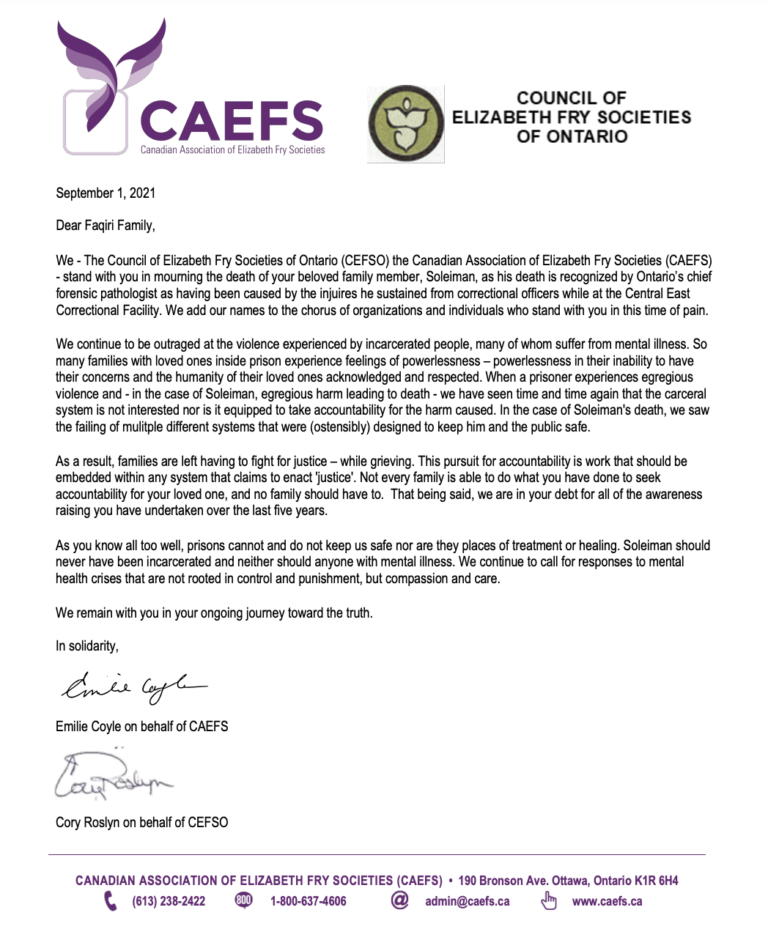Elizabeth Fry Week: Day 7
5/7/2022Today marks the last day of Elizabeth Fry Week 2022. We want to thank everyone again who has participated in this week. We especially thank all of our speakers, our planning committee, and those who assisted with social media. As we close this week, we reaffirm our commitment to advocating for and with all criminalized and incarcerated women and gender-diverse people. There is so much work to be done together. Many more thanks and reflections to come early next week.
Today is also mother’s day. Elizabeth Fry Week happens on the week leading up to Mother’s Day each year. We do this to help draw attention to the fact that most incarcerated women are mothers, many of whom were the sole care providers of their families at the time of incarceration. The impact of their incarceration then, is experienced by their entire families and their communities. The intergenerational impact is particularly acute for Indigenous families – which was highlighted in yesterday’s panel “Life Sentences, the Law, and Colonial Violence”. The ways in which life sentences serve to disrupt and break family connections has indeed been a predominant theme of this week.
Today, we are thinking of all of the mothers who will not get to be with their children to celebrate today and of all of the children who will not get to be with their mothers. This week has been full of much-needed awareness raising, learning, and collective grief. We are wishing you all rest and care.
Somebody Loves You (In Nova Institution.)
If you listened to one of our first offerings this week “Understanding Life Sentences in Canada”, you will have already heard El Jones’ powerful poem “Somebody Loves You (In Nova Institution.)”. We are re-releasing it today as a standalone audio piece. If you haven’t had a chance to listen to the entire panel, or to Dr. Deb Parke’s interview on why life sentences are a feminist issue, you can find those here.

Myth vs. Reality
For our last myth vs. reality, we are highlighting the egregious reality that children as young as 14 (at the time of the incident) can also be sentenced to life. In fact, prosecutors are obligated to consider seeking an adult sentence when a youth is found guilty of particular kinds of offences.



A Reflection on Working Across Difference
A goal of engaging in public awareness this week through live discussions with people with lived experience of the prison system has been to provide space for people whose voices are often left out of public discussion, in the hope that we can raise awareness about the persistent ways that discrimination and bias underpin the Canadian legal and prison system. Our work is often challenging, as we strongly believe in working across difference to achieve those fundamental values we all want in society – a kind world where people are not discriminated against by their race, class, age, ability, sexual orientation, relationship status, gender expression or their gender identity.
Many of our discussions this week have focused on how people are being criminalized by their race, but similar discriminatory logic exists in relation to all protected grounds. People are also being criminalized in Canada by their class, by their sexual identity, and by their gender. CAEFS stands firmly against attributing negative qualities to any broad group of people. In fact, we are committed to challenging thought that attributes negative qualities to any people at all. Instead, we work to demonstrate that it is deficits within our social systems and structures which are harmful, and which lead to the many social problems we face. We believe in upholding the rights of all.
May we continue to remain in space together and have the difficult discussions, and in doing so, to treat one another and ourselves with kindness and empathy. Miigwetch, merci and thank you for your time and participation. May we wake every day and do our best, toward a more just world.



